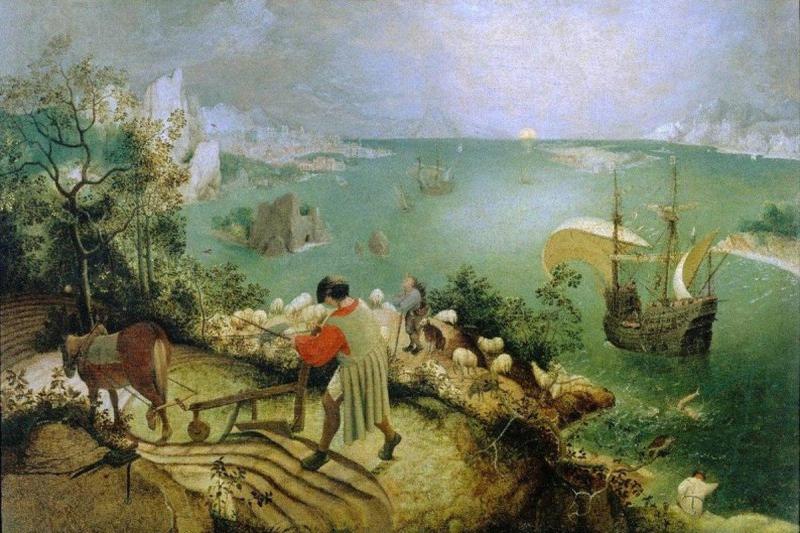Musée des Beaux Arts by WH Auden, Newsletter May 2024
Musée des Beaux Arts by WH Auden
Commentary by Alwyn Morris

Grief, relationships breaking down, loneliness, the failure of plans, the dashing of dreams – many events in life are tragic and of momentous significance. But WH Auden portrays in ‘Musée des Beaux Arts’ how little impact the suffering of others often has on those around the people who are struggling. In fact, he shows, we often barely notice what is going on in the lives of those right next to us.
About suffering they were never wrong,
The old Masters: how well they understood
Its human position:
They knew all about suffering, Auden says, these old painters (of the European pre-modern period). But what does he mean by ‘Its human position’? He goes on to show us. Events of tragic drama and even world significance take place next to other people doing the usual mundane chores or trivial actions of life. They take place:
While someone else is eating or opening a window or just walking dully along;
When Christ becomes incarnate and is born then ‘Children who did not specially want it to happen,’ are busy ‘skating / On a pond at the edge of the wood’.
When he is crucified for the sins of the world, dogs go on living their ‘doggy lives’ and (of all things) a horse belonging to one of the torturing Roman soldiers ‘Scratches its innocent behind on a tree.’
Auden then turns his attention to Breughel's ‘The Fall of Icarus’. This painting portrays the fall from the heavens of the hubristic boy who flew too close to the sun. Auden notes how in the painting,
everything turns away
Quite leisurely from the disaster;
The characters in the painting do not even look at Icarus falling from the heavens. The foregrounded ploughman is concentrating on his furrow. The fisherman by the sea is fishing. The shepherd with his dog and sheep faces in the opposite direction and stares at nothing very much. The galleon sails speedily away. It is a ‘leisurely’ picture of ordinary life.
the ploughman may
Have heard the splash, the forsaken cry,
But for him it was not an important failure; the sun shone
As it had to on the white legs disappearing into the green
Water, and the expensive delicate ship that must have seen
Something amazing, a boy falling out of the sky,
Had somewhere to get to and sailed calmly on.
The legs vanishing into the sea are not foregrounded at all – in fact, it can take a long time of looking at the painting before you even notice them. Bruegel focuses our attention on everything else that is going on.
The ‘human position’ of suffering for Auden is found in this painting: how the most incredible dramas occur right next to normal people living normal lives and doing normal things.
Although this isn’t one of Auden’s ‘preachy’ poems, it contains a sense that somehow failing to take into consideration the lives of those around is a weakness that we should correct. What astonishing human dramas and personal pain might we see if we lift our eyes up above the mundane activities of life?
